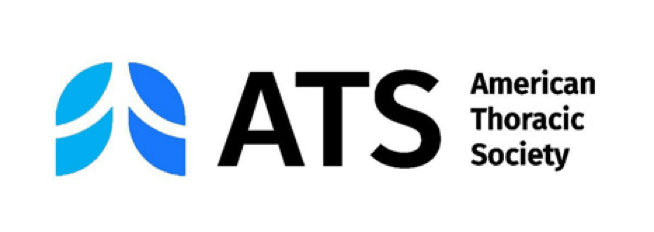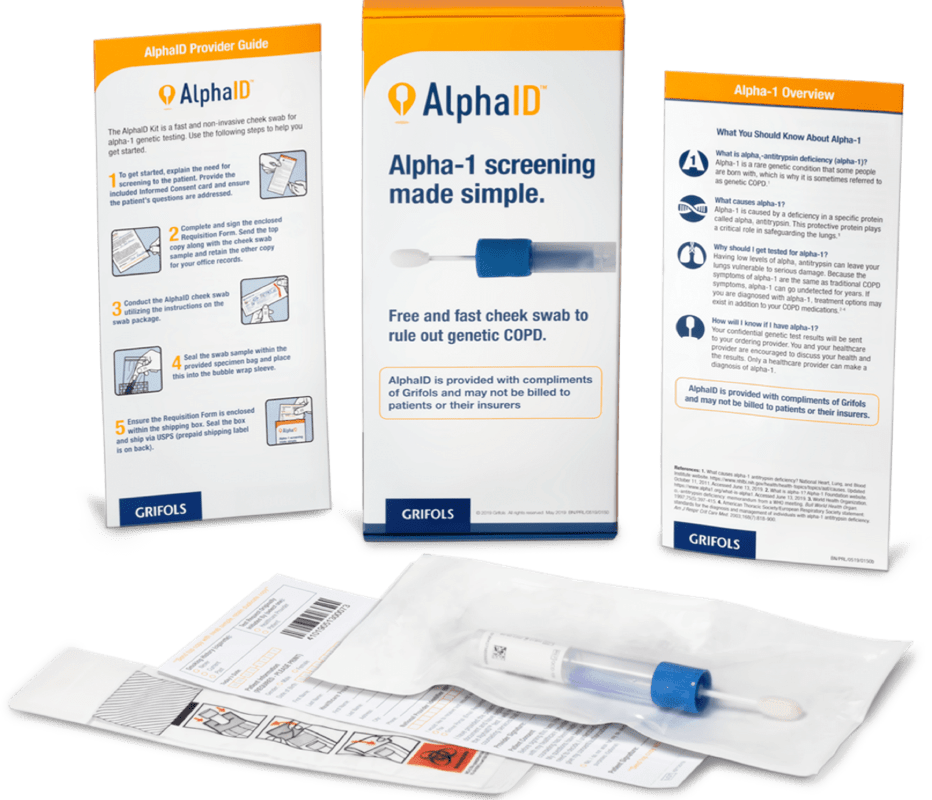Early Detection Is Critical
Several organizations, including the American Thoracic Society (ATS) and the European Respiratory Society (ERS), recommend screening patients with COPD or treatment-resistant asthma for alpha-1.1-5
The ATS and ERS recommend screening¹:
- All COPD patients, regardless of age, smoking history, ethnicity, or FEV1 status
- All adults with symptomatic asthma whose airflow obstruction is incompletely reversible after bronchodilator therapy
- All adults with symptomatic emphysema, regardless of smoking history
- Asymptomatic patients with persistent obstruction on pulmonary function tests and with identifiable risk factors (eg, smoking, occupational exposure)
- All immediate family members of individuals with alpha1-antitrypsin (AAT) deficiency

Review Additional Respiratory Guidelines
Screening for Alpha-1 in Your Practice
"In the end, when you’ve done the test, you’ve done your duty as a physician."
— D. Kyle Hogarth, MD
University of Chicago

AlphaID makes screening fast, free, and accurate*
*The receipt of these free testing services does not create any expectation or obligation to purchase or use any product or service offered by any manufacturer.
Up Next: Diagnostic Journey
FEV1, forced expiratory volume in 1 second.
References:
- American Thoracic Society/European Respiratory Society. American Thoracic Society/European Respiratory Society statement: standards for the diagnosis and management of individuals with alpha-1 antitrypsin deficiency. Am J Respir Crit Care Med. 2003;168(7):818-900.
- Sandhaus RA, Turino G, Brantly ML, et al. The diagnosis and management of alpha-1 antitrypsin deficiency in the adult. Chronic Obstr Pulm Dis. 2016;3(3):668-682.
- Campos MA, Wanner A, Zhang G, Sandhaus RA. Trends in the diagnosis of symptomatic patients with α1-antitrypsin deficiency between 1968 and 2003. Chest. 2005;128(3):1179-1186. doi:10.1378/chest.128.3.1179
- 2024 Gold Report - Global Initiative for Chronic Obstructive Lung Disease. GOLD. November 12, 2023. Accessed May 2, 2024. https://goldcopd.org/2024-gold-report/.
- Alpha 1-antitrypsin deficiency: memorandum from a WHO meeting. Bull World Health Org. 1997;75(5):397-415.
